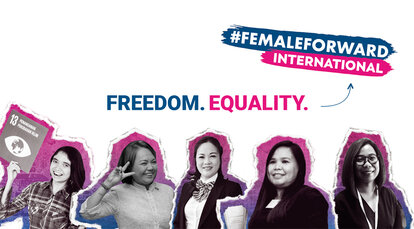Female Forward
What’s in a law? Institutionalising the legal protection of women

Laws protect individual rights and liberties. They are rules that bind people living in a community; a set of standards to resolve conflict and maintain order.
A number of legislations has been put in place to secure women’s rights.
International treaties exist like the Convention on the Elimination of All Forms of Discrimination against Women (CEDAW), adopted in 1979 by the UN General Assembly, with 188 State Parties as signatories. In Southeast Asia, the ASEAN Commission on the Promotion and Protection of the Rights of Women and Children (ACWC) was established in 2010 to build commitments and a common understanding on various gender issues.
Here are gender-related laws and strategic actions that are worth noting in five countries in Southeast Asia:
Indonesia’s Presidential Instruction on Gender Mainstreaming (INPRES No. 9/2000) aimed at reducing the gap between Indonesian women and men in accessing and obtaining development benefits, as well as increasing participation in and control over the development process
Malaysia’s amended Domestic Violence Act allows social welfare officers to grant victims of domestic violence immediate protection, without the need to make a police report or receive a court order
Myanmar’s National Strategic Plan for the Advancement of Women aims to improve systems, structures and practices to ensure women’s equal participation in decision-making and leadership at all levels of society
The Philippines’ Safe Spaces Act recognizes sexual harassment between peers and sexual harassment in public spaces both online and offline, and not only being committed by those having authority, influence or moral ascendancy over another in a work, training, educational environment
Vietnam’s National Strategy on Gender Equality aims to raise awareness, narrow the gender gap, and enhance women’s knowledge towards better healthcare and employment.
While these were welcome developments in the advancement of women’s rights, much more lobbying is needed to further make progress, and implement laws that would guarantee that everyone is able to participate in political, social, and economic activities without fear of discrimination.

Find more about #FemaleForwardInternational